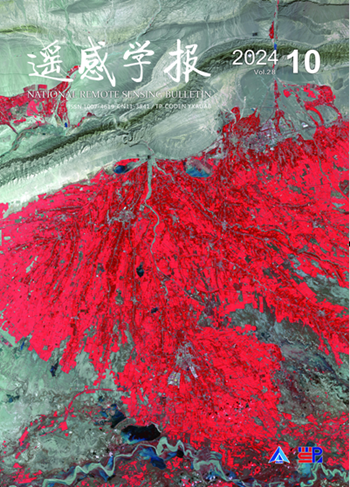Spatiotemporal Mapping of Salt Marshes in the Intertidal Zone of China during 1985–2019
引用次数: 19
Abstract
This study mapped the areal extent, identified the species composition, and analyzed the changes of salt marshes in the intertidal zone of China during the period 1985–2019. With the aid of the cloud platform of the Google Earth Engine, we selected Landsat 5/8 and Sentinel-2 images and used the support vector machine classification method to extract salt marsh information for the years of 1985, 1990, 1995, 2000, 2005, 2010, 2015, and 2019. Seven major species of salt marshes: Phragmites australis, Suaeda spp., Spartina alterniflora, Scirpus mariqueter, Tamarix chinensis, Cyperus malaccensis, and Sesuvium portulacastrum were identified. Our results showed that salt marshes are mainly distributed in Liaoning, Shandong, Jiangsu, Shanghai, and Zhejiang, with varying patterns of shrinking, expansion, or wavering in different places. The distribution of salt marshes has declined considerably from 151,324 ha in 1985 to 115,397 ha in 2019, a drop of 23.7%. During the same period, the area of native species has dropped 95.4% from 77,741 ha to 3,563 ha for Suaeda spp. and 45.1% from 60,511 ha to 33,193 ha for P. australis; on the contrary, the area of exotic species, S. alterniflora, has exhibited a sharp rise from just 99 ha to 67,527 ha. For the past 35 years, the driving factors causing salt marsh changes are mainly land reclamation, variations in water and sand fluxes, and interspecific competition and succession of salt marsh vegetation. These results provide fundamental reference information and could form the scientific basis for formulating policies for the conservation and utilization of salt marsh resources in China.1985-2019年中国潮间带盐沼时空制图
本文对1985-2019年中国潮间带盐沼的面积范围进行了绘制,物种组成进行了鉴定,并对盐沼的变化进行了分析。借助谷歌地球引擎云平台,选取Landsat 5/8和Sentinel-2影像,采用支持向量机分类方法提取1985、1990、1995、2000、2005、2010、2015和2019年盐沼信息。盐沼主要物种有芦苇、沙豆科植物、互花米草、海荆芥、柽柳、马六甲和马齿苋。结果表明:盐沼主要分布在辽宁、山东、江苏、上海和浙江,各地盐沼呈现出不同的收缩、扩张和摇摆格局;盐沼的分布已经从1985年的151324公顷大幅下降到2019年的115397公顷,下降了23.7%。同期,本土物种面积由77,741 ha减少到3,563 ha,减少了95.4%;本土物种面积由60,511 ha减少到33,193 ha,减少了45.1%;相反,外来种互花草的面积从99 ha急剧增加到67,527 ha。近35 a来,引起盐沼变化的驱动因素主要是土地开垦、水沙通量变化、盐沼植被种间竞争和演替。研究结果可为盐沼资源保护与利用政策的制定提供基础参考信息和科学依据。
本文章由计算机程序翻译,如有差异,请以英文原文为准。
求助全文
约1分钟内获得全文
求助全文
来源期刊

遥感学报
Social Sciences-Geography, Planning and Development
CiteScore
3.60
自引率
0.00%
发文量
3200
期刊介绍:
The predecessor of Journal of Remote Sensing is Remote Sensing of Environment, which was founded in 1986. It was born in the beginning of China's remote sensing career and is the first remote sensing journal that has grown up with the development of China's remote sensing career. Since its inception, the Journal of Remote Sensing has published a large number of the latest scientific research results in China and the results of nationally-supported research projects in the light of the priorities and needs of China's remote sensing endeavours at different times, playing a great role in the development of remote sensing science and technology and the cultivation of talents in China, and becoming the most influential academic journal in the field of remote sensing and geographic information science in China.
As the only national comprehensive academic journal in the field of remote sensing in China, Journal of Remote Sensing is dedicated to reporting the research reports, stage-by-stage research briefs and high-level reviews in the field of remote sensing and its related disciplines with international and domestic advanced level. It focuses on new concepts, results and progress in this field. It covers the basic theories of remote sensing, the development of remote sensing technology and the application of remote sensing in the fields of agriculture, forestry, hydrology, geology, mining, oceanography, mapping and other resource and environmental fields as well as in disaster monitoring, research on geographic information systems (GIS), and the integration of remote sensing with GIS and the Global Navigation Satellite System (GNSS) and its applications.
 求助内容:
求助内容: 应助结果提醒方式:
应助结果提醒方式:


